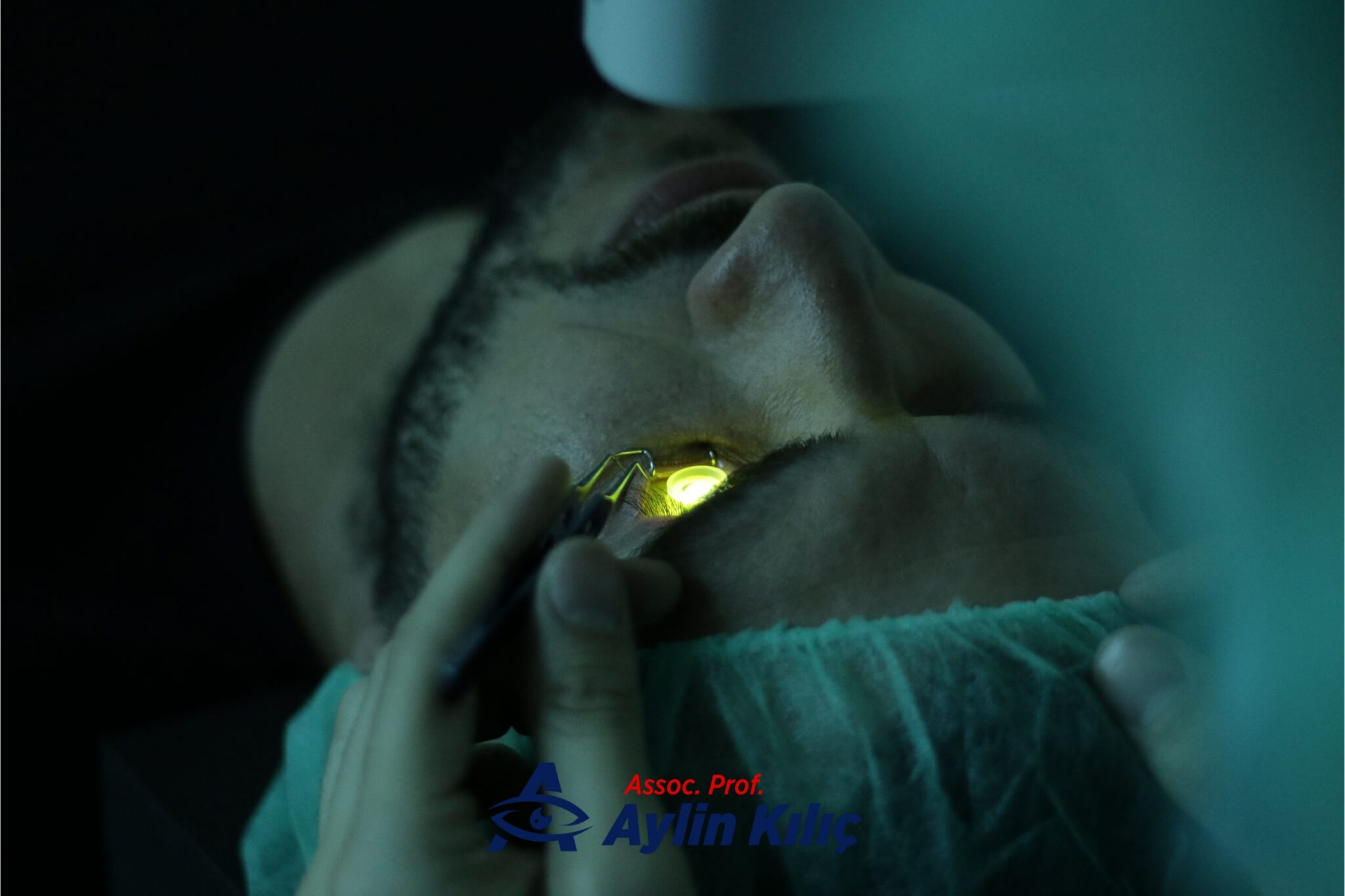Early diagnosis and early intervention are of great importance in keratoconus disease. Because keratoconus is a progressive disease and more deterioration occurs in the cornea over time. Further thinning of the cornea leads to increased visual impairment. We can say that treatments that can stop the progression of the disease are also of great importance here. Corneal Cross-linking can be shown as one of the interventions of great importance. In this content, we will try to give more details about what corneal cross-linking is.
What is Corneal Cross-linking?
Cross-linking is a preferred treatment method to increase the number of cross-links between the collagen structures of the cornea and to make the cornea firmer. In this way, the progression of keratoconus is stopped as it strengthens the cornea.
How is Corneal Cross-linking Applied?
Let us also give information about how the treatment is applied. We will especially give information about the operation stage. In the first stage, the corneal surface is cleaned and then this part is numbed with the help of drops. In the second stage, a substance called riboflavin is applied to the corneal surface. In the third stage, riboflavin is exposed to UV light. This process elicits reactions that strengthen the collagen fibers of the cornea. As a result, the cornea is strengthened.
 What Advantages Does Cross-linking Treatment Provide?
What Advantages Does Cross-linking Treatment Provide?
In keratoconus disease, the cornea continues to taper forward and the corneal layer gradually becomes thinner. We observe that the sharpening also increases over time. The biggest advantage of cross-linking treatment is that it stops this sharpening as it makes the cornea firmer and stronger. Other advantages include the fact that there is no surgical intervention with an incision and the person can return to his/her normal life in a short time after the treatment.
How and when the treatment will be applied should be decided by the doctor. It would be best to consult a specialist doctor for more detailed information and to evaluate the condition of your eye.

 What Advantages Does Cross-linking Treatment Provide?
What Advantages Does Cross-linking Treatment Provide?